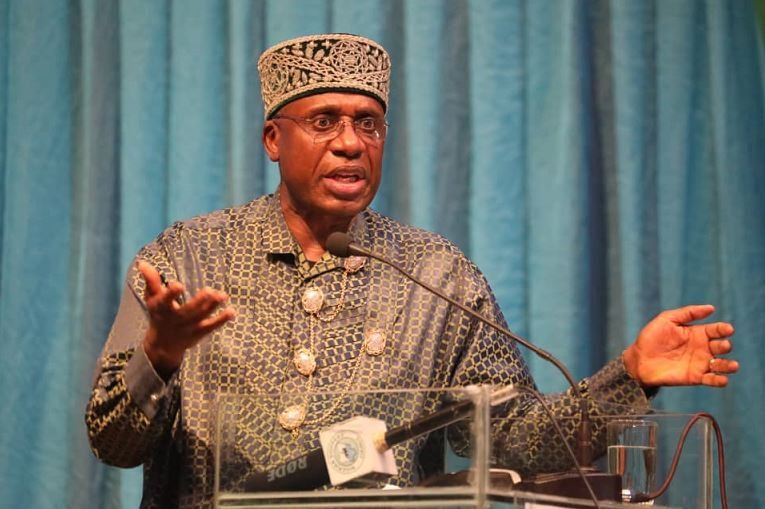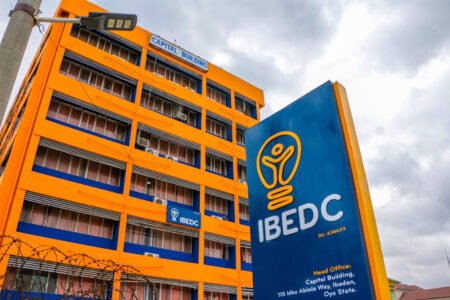The United States Justice Department has apprehended another Nigerian for stealing COVID-19 economic relief funds.
According to reports, Chukwuemeka Onyegbula, aka Phillip Carter, is employed as an IT engineer with Pan Ocean Oil Corporation Nigeria Limited. He is currently being detained in Nigeria.
Onyegbula allegedly submitted fraudulent unemployment claims and loan applications for Economic Injury Disaster Loan Program. He is accused of stealing over $340,000 from seventeen different states in the US.
The incident comes barely five weeks after the aide to Ogun state governor, was arrested in US for the same offence. The department has now called on US citizens to report such fraudulent activities to the authorities.
The US Department of Justice made this known in a statement on its official website:
“Nigerian National indicted in Washington State for fraud on COVID-19 economic relief programs.
“Allegedly submitted fraudulent unemployment claims and loan applications for Economic Injury Disaster Loan Program
“A Nigerian citizen has been indicted by a federal grand jury in Seattle for conspiracy to commit wire fraud, and multiple counts of wire fraud and aggravated identity theft, announced Acting U.S. Attorney Tessa M. Gorman. Chukwuemeka Onyegbula, a/k/a Phillip Carter, is currently detained in Nigeria.
“According to the indictment and an unsealed criminal complaint sworn June 6, 2021, law enforcement linked an email account belonging to Onyegbula but using the name ‘Phillip Carter’ to at least 253 fraudulent unemployment insurance filings in Washington, Arizona, California, Colorado, Illinois, Indiana, Kansas, Massachusetts, Michigan, Minnesota, Missouri, Montana, Ohio, Nevada, Rhode Island, Texas, and Wisconsin. Nearly $290,000 was paid out in unemployment claims. Additionally, the indictment alleges Onyegbula and his co-conspirators accessed the COVID-19 Economic Injury Disaster Loan (EIDL) page on the Small Business Administration’s website and submitted applications for EIDLs using the stolen PII of residents of Washington and other states. Nearly $54,000 was paid out in fraudulent disaster loans.
“Onyegbula allegedly used variations of a single e-mail address in a manner intended to evade automatic detection by fraud systems. By using this practice, Onyegbula made it appear that each claim was connected to a different email account. The email account used for fraud was linked to Onyegbula by various electronic evidence such as phone numbers and IP addresses. The email account contained information such as a visa application receipt, banking information and homework assignments by Onyegbula’s son. The cyber evidence also includes dozens of tax return information for U.S. citizens.
“Evidence gathered indicates Onyegbula is employed as an IT engineer with Pan Ocean Oil Corporation Nigeria Limited.
“Conspiracy to commit wire fraud and wire fraud are punishable by up to thirty years in prison when the offense relates to benefits paid in connection with a presidentially-declared disaster or emergency, such as the COVID-19 pandemic. Aggravated identity theft is punishable by a mandatory minimum two year sentence to run consecutive to any sentence imposed on the other counts of conviction.
“The charges contained in the indictment are only allegations. A person is presumed innocent unless and until he or she is proven guilty beyond a reasonable doubt in a court of law.
“This case is being investigated by the FBI, with assistance from the Department of Labor Office of Inspector General (DOL-OIG). The Office of International Affairs of the Department of Justice’s Criminal Division provided substantial assistance. The Washington Employment Security Department is cooperating in the investigation.
“This case is being prosecuted by Assistant United States Attorneys Cindy Chang and Seth Wilkinson.
“On May 17, 2021, the Attorney General established the COVID-19 Fraud Enforcement Task Force to marshal the resources of the Department of Justice in partnership with agencies across government to enhance efforts to combat and prevent pandemic-related fraud. The Task Force bolsters efforts to investigate and prosecute the most culpable domestic and international criminal actors and assists agencies tasked with administering relief programs to prevent fraud by, among other methods, augmenting and incorporating existing coordination mechanisms, identifying resources and techniques to uncover fraudulent actors and their schemes, and sharing and harnessing information and insights gained from prior enforcement efforts.











